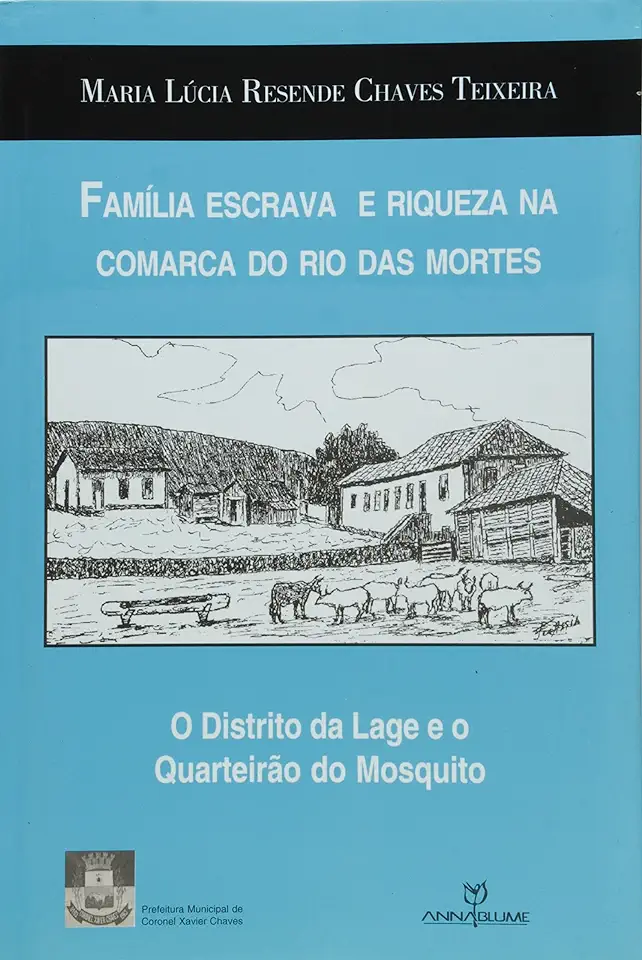
Slave Family and Wealth in the Rio das Mortes Region - Maria Lúcia Resende Chaves Teixeira
Slave Family and Wealth in the Rio das Mortes Region: A Captivating Exploration of Kinship, Economy, and Power Dynamics in 19th-Century Brazil
Unveiling the Hidden Narratives of Enslaved Families
In her groundbreaking work, "Slave Family and Wealth in the Rio das Mortes Region," Maria Lúcia Resende Chaves Teixeira delves into the intricate tapestry of enslaved families and their profound impact on the economic and social fabric of 19th-century Brazil. Through meticulous research and compelling storytelling, Teixeira sheds light on the lives, struggles, and resilience of enslaved individuals, offering a nuanced understanding of the complex dynamics that shaped their existence.
Kinship and Community: The Bedrock of Resilience
At the heart of Teixeira's exploration lies the concept of kinship and the vital role it played in sustaining enslaved families. She demonstrates how enslaved individuals formed tight-knit communities, providing emotional support, practical assistance, and a sense of belonging in the face of unimaginable hardships. These kinship networks not only fostered resilience but also served as a source of resistance against the dehumanizing forces of slavery.
Economic Contributions: Beyond the Bonds of Servitude
Teixeira challenges conventional narratives by highlighting the significant economic contributions of enslaved families. She reveals how their labor, skills, and knowledge were essential to the wealth accumulation of slave owners and the broader regional economy. By examining the diverse occupations enslaved individuals engaged in, from agricultural labor to artisanal crafts, Teixeira underscores their agency and the vital role they played in shaping the economic landscape of the Rio das Mortes region.
Power Dynamics and Resistance: Navigating a Hostile Terrain
Teixeira deftly navigates the complex power dynamics that governed the lives of enslaved families. She exposes the brutal realities of physical and psychological violence, the constant threat of separation, and the pervasive dehumanization that characterized the institution of slavery. Yet, amidst this oppressive environment, Teixeira uncovers instances of resistance, both overt and covert, demonstrating the indomitable spirit of enslaved individuals who refused to be defined solely by their bondage.
A Treasure Trove of Historical Insights
"Slave Family and Wealth in the Rio das Mortes Region" is a treasure trove of historical insights, meticulously researched and presented with clarity and empathy. Teixeira draws upon a wealth of primary sources, including slave narratives, plantation records, and legal documents, to construct a vivid and nuanced portrayal of enslaved families and their experiences. Her work is a testament to the power of historical research in unearthing hidden narratives and challenging dominant historical discourses.
A Must-Read for Historians, Sociologists, and Anyone Interested in the Human Experience
"Slave Family and Wealth in the Rio das Mortes Region" is a must-read for historians, sociologists, and anyone interested in the human experience. Teixeira's groundbreaking study offers a profound understanding of the lives of enslaved families, their contributions to society, and their unwavering resilience in the face of adversity. This book is a powerful reminder of the enduring legacies of slavery and the urgent need for continued research and dialogue on this critical aspect of human history.